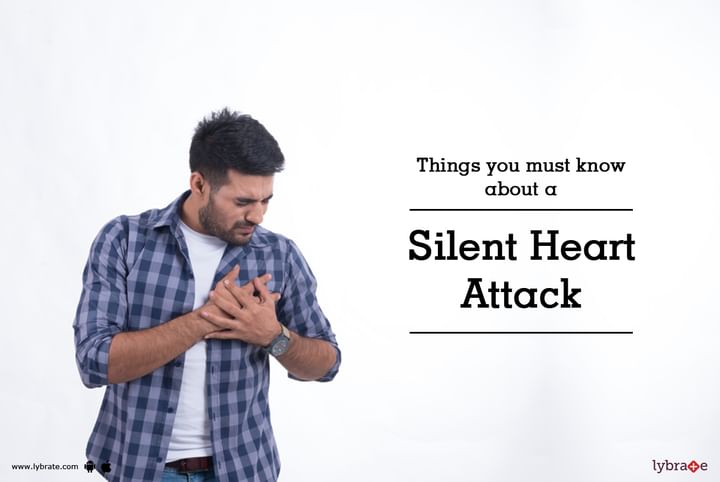Things You Must Know About A Silent Heart Attack!
A silent attack refers to a heart attack that occurs without causing any observable symptoms. Since there are no noticeable signs, a silent heart attack is only diagnosed retrospectively, when there is evidence of myocardial infarction on ECG in an individual without a medical history of having had an attack.
What could possibly cause a silent heart attack?
Most often, myocardial infarction or heart attack occurs due to the rupture of atherosclerotic plaque in one of the coronary arteries. The rupture leads to the formation of blood clots in the artery, eventually causing an acute blockage. The blocked or narrowed arteries fail to supply oxygenated blood to the heart, causing it to become ischemic – starved for oxygen. The condition typically causes alarming symptoms, including chest pain. The ischemic heart muscle collapses unless the blockage is relieved within the first few hours.
Factors that put you at risk of myocardial infarction
The risk factors for a silent heart attack are no different from those of a normal attack. These include –
- Tobacco/smoking
- Family history and age
- Diabetes
- High cholesterol levels
- Elevated blood pressure
- Physical inactivity
- Being overweight
A heart attack without prominent signs increases your odds of having another attack and other complications like heart failure.
What are the symptoms?
The symptoms of a silent heart attack are subtle or usually, go unnoticed. However, a person may feel the after-effects of the damage caused by an attack. These may include –
- Discomfort in the arms, jaw, chest or back
- Fainting spells or dizziness
- Over exhaustion or fatigue
- Shortness of breath
- A sensation of heartburn
- Cold sweats
There are no tests to ascertain whether you are vulnerable to a silent heart attack or not. If you can relate to any of the risk factors mentioned above, you should visit a doctor and get yourself diagnosed and treated for the same.
Reasons why you may not be able to detect a silent attack
- Some individuals are born with a very high tolerance for pain. They either do not notice the signs or choose to ignore them
- Certain medical conditions like chronic kidney disease and diabetes may affect the nerves carrying pain impulses. Therefore, the signs of a heart attack or angina are not that noticeable
- Cardiac ischemia may exhibit atypical symptoms in some people
Thus, the only way to tell if you have just suffered a silent heart attack is by being diagnosed by a specialist. A thorough review of the patient’s medical history, symptoms, and heart health will allow the doctor to make an accurate diagnosis.


+1.svg)
